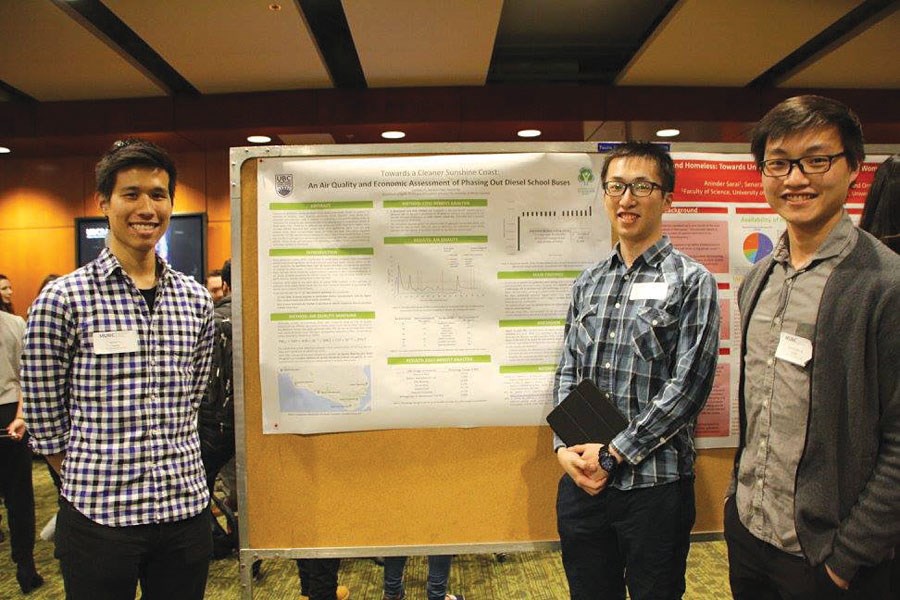Three fourth-year UBC Environmental Science students recently completed a community project on the Sunshine Coast with the primary goal of examining the feasibility of replacing School District No. 46’s (SD46) diesel-powered school buses with electric buses.
Launched last fall, the project was organized in collaboration with the Sunshine Coast Clean Air Society, SD46 and UBC.
The work consisted of an economic cost-benefit analysis of such an undertaking, as well as air quality testing on the diesel buses for three different conditions: while driving, picking up and dropping off school children. Greenhouse gas (GHG) savings were also modelled based on current bus fuel consumption records.
The students presented their findings at both UBC and at the SD46 administrative offices in Gibsons. They found that it would be economical to replace the diesel school buses with electric but only if the buses could sell the power stored in their batteries back to BC Hydro during high consumption periods. This concept is known as a vehicle-to-grid (V2G) system and is still experimental. It has been studied and tested in California, in some European countries and in Japan. Until V2G becomes a reality in Canada, it would not be cost effective to replace SD46 diesel school buses with electric buses.
The GHG savings were quantified using $30 per ton of carbon emitted.
Air quality on the diesel buses during driving and while picking up and dropping off students peaked occasionally well above ambient levels. However, these peak levels were still below WHO standards and below B.C. and Canadian particulate matter (PM2.5) pollution air quality objectives.
– Submitted by the Sunshine Coast Clean Air Society



